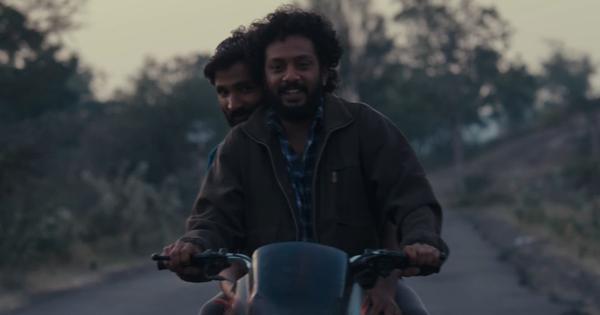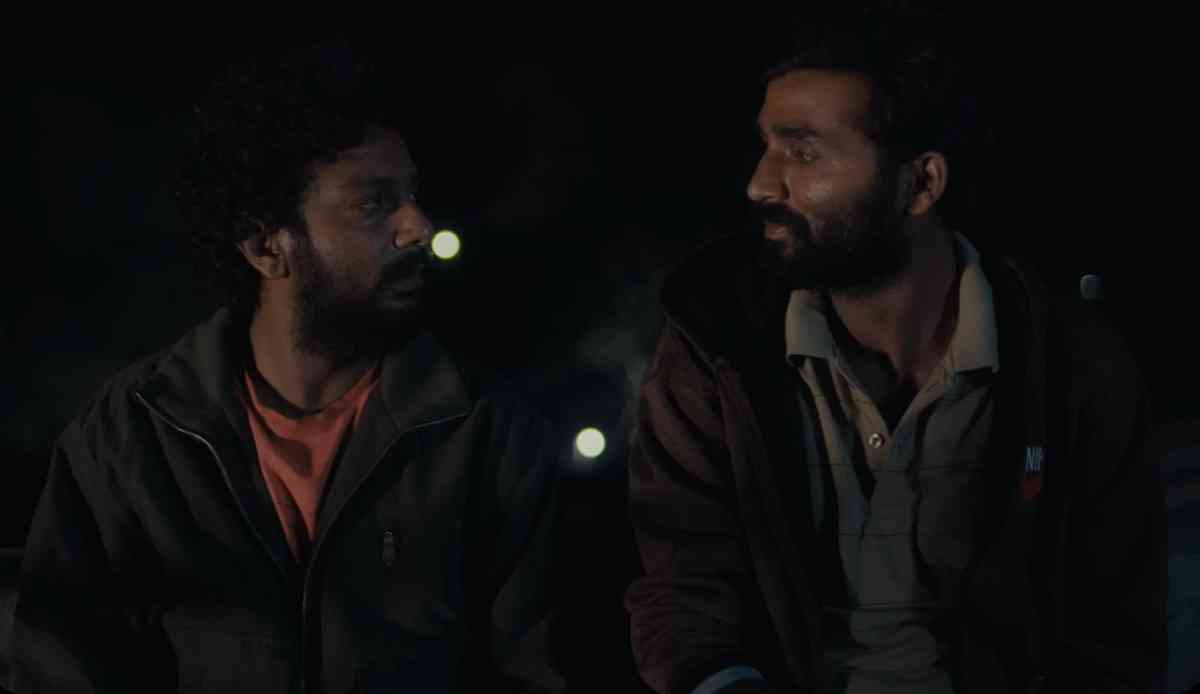
Rohan Kanawade’s Sabar Bonda throbs with intensity, but ever so subtly. Kanawade’s Marathi-language film is suffused with the secretiveness and discretion that marks the delicate nature of its subject: men who love men.
The death of Anand’s father necessitates a reluctant return to his ancestral village in rural Maharashtra. Anand (Bhushaan Manoj) and his mother Suman (Jayshri Jagtap) arrive in Kharshinde to be handed a host of rules that are to be observed during the traditional mourning period.
Drink only black tea. Don’t trim your beard or hair. Don’t wear a cap. However, what isn’t on the list is “Don’t fall for Balya, the neighbour with whom you share a childhood memory.”
Unlike Anand, who has moved away to work in Mumbai, Balya (Suraaj Suman) has not only stayed behind but also found subterranean ways to address his sexuality. Anand, who deeply misses his father and chafes at being around his relatives, finds succour in Balya’s company.
Kanawade’s astonishingly assured debut feature is a quiet, unhurried and tender tale of personal upheaval taking place in unconventional settings. The “rural gay romance” label doesn’t quite capture what Kanawade has achieved.
In the hushed stillness of togetherness, passion is articulated through murmurs and touch. A hand runs through hair; feet dangle tantalisingly close. When Anand and Balya are together, it is as though time is suspended, the two of them existing to the exclusion of everyone else.
A beautiful erotic encounter between the men has been snipped out of the version that will be released in India. But whatever else survives is sensuous enough.
The film is named after the cactus pears that grow around the village. Spiky on the outside but soft inside, the cactus pear is the forbidden fruit that awaits Anand and Balya, one still working through his grief and the other eager to escape his surroundings.
Several scenes have an expressive, dream-like flavour, as though they are taking place in Anand’s head. The emotional landscape is portrayed as much through the staging as through the writing.
Cinematographer Vikas Urs has magnificently shot Sabar Bonda in the intimacy-friendly 1.66:1 aspect ratio. The edges of the frames are curved, as though photographs pasted in an album have come to life. In several compositions, only parts of the faces are visible as the men seek to define the contours of their relationship.
It is when Anand and Balya are in the presence of their families that the sober reality of their circumstances catches up with them. Their communication gains a clandestine edge. But this isn’t a film of name-calling or flaming rows – although there is one.
The overall lack of histrionics is Kanawade’s way of emphasising how unspectacular and therefore legitimate love is – regardless of who is expressing it. However, there are times when Kanawade’s understated approach risks dialling down the harshness of the homophobia that surely awaits the men, especially Balya.

Sabar Bonda is the latest entry on the rather short list of Indian queer romances, from Prem Kapoor’s path-breaking Badnaam Basti (1973) to Deepa Mehta’s provocative Fire (1996). Rather than the taboo aspects of the story, Kanawade turns his attention to the lived quality of the romance – which sets Sabar Bonda aside from its predecessors.
There are hints of Brokeback Mountain (2005) in the manner in which the love story proceeds in the open, amidst goat herding activity and beneath the non-judgemental shade of trees. The cactus pear reference also suggests a tribute to Call Me By Your Name (2017), while the dreamy scenes are reminiscent of Thai and Taiwanese cinema. But Kanawade’s treatment of two middle-class Maharashtrian men pursuing an unsanctioned union is wholly his own.
The 116-minute movie heaves with feeling, but never overwhelmingly so. Sabar Bonda wears its boldness lightly and beguilingly.
The lead actors powerfully traverse a spectrum of self-discovery, projecting the plot’s interiority onto their faces and bodies. While the focus is on Bhushaan Manoj’s sensitive Anand, Suraj Sanaam’s Balya emerges as the more memorable character for the compromises that Balya has had to make simply for being himself.
Also read:
In Marathi film ‘Sabar Bonda’, the forbidden fruit of gay love
How ‘Sabar Bonda’ draws us into the heads and hearts of its lovers
📰 Crime Today News is proudly sponsored by DRYFRUIT & CO – A Brand by eFabby Global LLC
Design & Developed by Yes Mom Hosting






